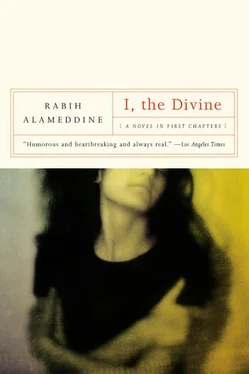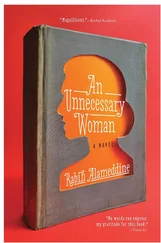Nurse Killed Patients to Have Quiet Shifts
BEIRUT, LEBANON — A nurse confessed to local police to killing 7 patients so they would not disturb her while she worked at night.
Lamia Shaddad routinely killed patients by injecting them with lethal drugs stolen from the hospital. “I did not want to be disturbed,” the 40-year-old nurse said. “The patients were demanding and made too much noise.”
The nurse attempted suicide Friday after her confession. She is recovering at the same hospital where she worked.
I am ashamed to admit my first reaction was not concern for Lamia, but for my father. Ramzi echoed my sentiment. “Poor dad,” he said. “He must be going through hell. As if he doesn’t have enough to deal with.” Our father was a respected physician at the same hospital. How he was going to survive this scandal, I had no idea. The black sheep of the family were supposed to be us, Ramzi and me — he, the out homosexual, and me, the twice-divorced adulteress who abandoned her son.
When I was growing up, my father was the center of my universe. I considered him the handsomest man in the world, tall, dark hair and eyes, with the ubiquitous Lebanese mustache. He was a ladies’ man. In a culture that idolized virile, bed-hopping males, he flourished. He charmed the pants off everybody. We, his children and his wife, forgave him all his sins, all his indiscretions.
He was anachronistic, a traditional man in a rapidly changing culture. Yet he valiantly attempted to hold off the inevitable moral and cultural collapse, as he called it. While the country’s mores adjusted and mutated, he still held the belief that a man’s reputation is all he has. He still believed in honor in a society which now honored criminals and marauders. Having an offspring’s name in police files would surely shame him.
At first glance it might appear that my father’s traditionalism and his lascivious womanizing were contradictory. Not so. The behavior was typical in the culture. When I was fourteen, my father was the one who explained the birds and the bees. My stepmother had already prepared me, but it was my father, the physician, who provided the medical details. The talk was in our main living room, to give it a more formal air. It was early afternoon, after he had arrived from the hospital. He was still wearing his suit, adding to the seriousness of the occasion. Usually, he left a trail of clothes behind him the instant he came through the door going straight to his bedroom, my stepmother picking up after him, after which my father emerged seconds later wearing a T-shirt and pajama bottoms. Around his neck that afternoon was his stethoscope, which he carried at times to give weight to his medical authority. The talk was serious, but not dreary. He made easy jokes, smoked his cigarettes leisurely. One statement stuck in my mind. “A boy’s sexuality is like a plastic tablecloth,” he said. “If a carafe of wine is spilled on it, you can easily wipe it off. A girl’s sexuality, on the other hand, is like fine linen, much more valuable. If a carafe of wine is spilled on it, it will never come off. You can wash it and wash it, but it will never be the same.”
I never compared notes with my sisters to find out whether they received the fine linen speech. I always felt he told it specifically to me because I was fooling around with my boyfriend at the time. Of the five, I was his only daughter who was deflowered before marriage. Amal, Lamia, and Majida all earned their wedding dresses, whereas I had eloped with my first husband. Rana, my stepmother’s eldest, was killed before she tasted love.
We were picked up at the airport by my son, Kamal, who had grown even more since I had seen him four months earlier. He had turned sixteen. On my arrival in Beirut, my ex-husband, Omar, used his political clout as a minister in the government to go through all the restricted areas and whisk me out of the airport. Ever since I married him, I had never had to stop at passport control or customs in Beirut. Kamal was waiting for us as we disembarked, the chauffeured car on the tarmac.
“How did you know we were on this flight? We tried calling, but no one was answering. We tried everybody.”
“This was the first flight in.”
“What happened? Tell me.”
“Lamia killed patients at the hospital. At least seven. That’s how many she remembered, but it could have been more. They’re checking. Everybody’s going crazy. The hospital was about to start an investigation. Another nurse was telling Lamia about the possible investigation and Lamia must have just told her she killed the patients. Just like that. The police were brought in. They asked Lamia if she killed the patients and your sister said yes.”
“Just like that?”
“Yes, just like that. She thought it was no big deal. The patients annoyed her so she killed them. Your sister’s definitely wacko.” He began chewing on his thumbnail. I slapped his hand away.
“How’s your grandfather dealing with this?”
“Seems okay so far. He’s been talking to everybody. He doesn’t want a trial. I think she’s going to be committed.”
“How’s Lamia doing? How’s her husband?”
Kamal shrugged, and the corners of his lips curved down. “I can’t tell. He seems fine, as unperturbed as ever. So does she. She tried to kill herself, but failed. Ironic, huh?”
“That’s not funny, Kamal.”
I ran my hand through his soft hair.
The family gathered at the hospital. In crisis, our family pulls together like no other. My sisters, their husbands, and older children were there. So was Lamia’s husband, but not her children. There were no outsiders. In normal circumstances, when one of ours is hospitalized, the hospital waiting room would have been filled with people out of deference to my father and his position in the community. In this case, the community stayed away. The air was funereal. Saniya was wearing black, but that was expected. Amal was wearing black as well, which is what gave the gathering its solemn appearance. My ex-husband Omar was there. He always stood by me in times of crisis.
Our entrance was greeted with tears all around. When my father saw Ramzi, he cried like a baby, hugging his son, shaking uncontrollably, which only increased the flow of tears from the family. In all my years, I had never seen my father cry. He had aged, white hair and wrinkles, stooped posture. I joined in the crying. It was the closest I had felt toward him in a long time.
It took a couple of minutes for my father to compose himself. Until he did, Omar was in charge, which was disconcerting at first, since he was not exactly part of the family, but became understandable as he spoke, explaining what happened. He had arranged everything. Lamia was to be institutionalized. There was no doubt she was mentally unbalanced. There would be no trial, no more publicity. In time Lamia would be forgotten by the community.
“What about the children?” I asked.
“They seemed okay,” Amal answered. “You have to transfer them to a different school, don’t you think?” The question was directed at Lamia’s husband, who was not paying attention. He was sitting in his chair, seemingly nonplussed by the events surrounding him, in his own world as usual. Two folds of fat hung over his starched back collar. “Samir, do you think you should transfer the kids to another school?” Amal asked again.
He looked up, awakened from his reverie. “Maybe I should. I guess so. Put them in a new school where no one knows them.”
“Yes,” Amal said. “It’s for the best and school hasn’t started yet so there should be no problem.”
“I’ll tell my mother,” he said.
“I’ll talk to her,” Amal said. “Don’t worry about it.” She looked at me, shaking her head, and whispered, “It’s a good thing he still lives with his mother. She’s the only competent one in the whole family. The kids will be fine. I’ll make sure of it.”
Читать дальше












